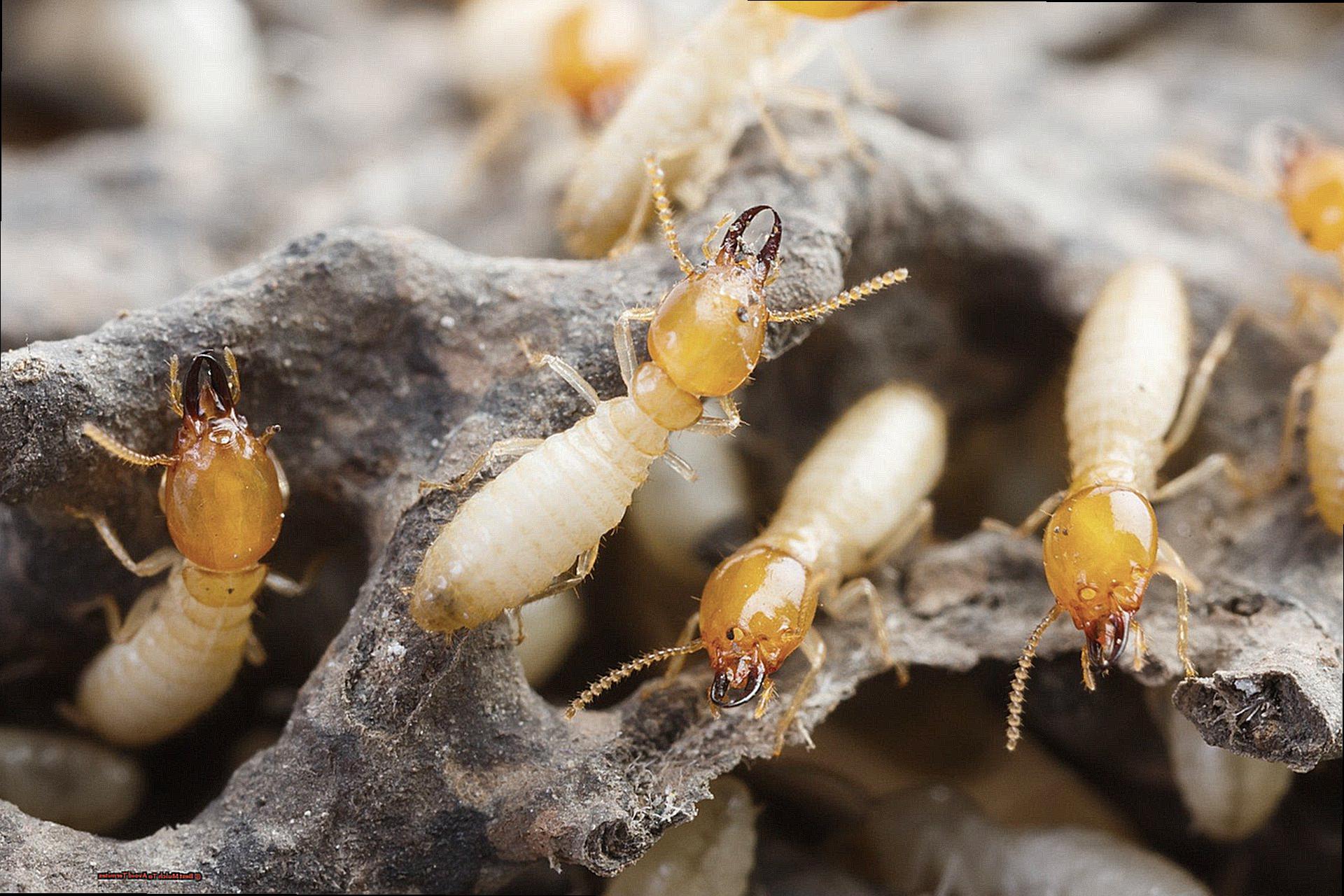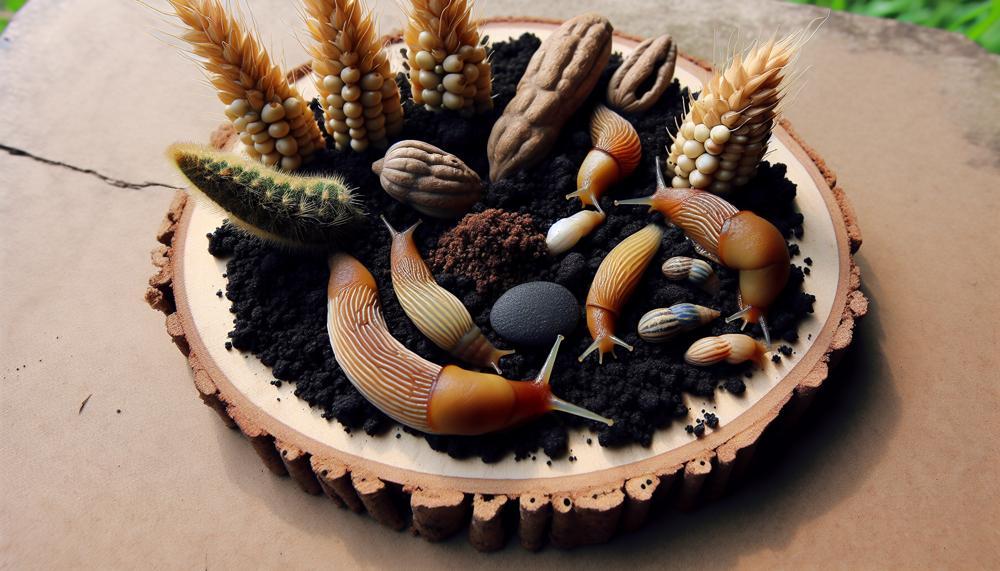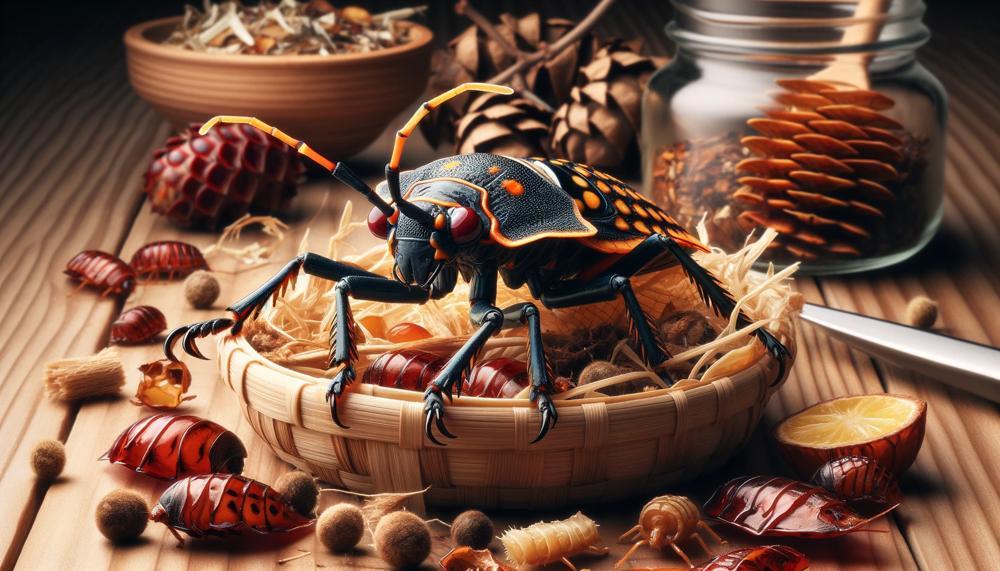As homeowners, we all strive to protect our beloved properties from potential threats.
From pesky pests to natural disasters, we do everything in our power to keep our homes safe and sound. But there’s one sneaky enemy that often goes unnoticed until it’s too late – termites.
These tiny yet destructive insects can wreak havoc on our homes if not kept under control. And while there are various methods for preventing termite infestations, one of the most effective and environmentally-friendly options is using the right type of mulch.
So, grab a cup of coffee, sit back, and let’s explore the best mulch options to avoid termites.
Table of Contents
- 1 Best Mulch To Avoid Termites?
- 2 The Importance of Moisture in Termite Prevention
- 3 Best Types of Mulch to Avoid Termites: Gravel and Crushed Stone
- 4 Rubber Mulch: A Safe and Effective Alternative for Termite Prevention
- 5 Organic Mulches: Risks and Precautions for Termite Infestations
- 6 Tips for Using Organic Mulch Safely to Prevent Termites
- 7 Other Factors to Consider in Termite Prevention with Mulch
- 8 Conclusion
Best Mulch To Avoid Termites?
When safeguarding your home against termite invasions, the best defense is a good offense. And one of the most successful strategies for preventing termite infestations is selecting the right type of mulch for your landscaping. In this blog post, we will explore the top mulch choices to avoid termites and protect your home.
Pine Straw
Pine straw is a favorite among gardeners and landscapers for its aesthetically pleasing appearance and ability to retain moisture. However, this same feature can make it a prime target for termites. To deter these pests, opt for properly dried and aged pine straw to reduce its moisture level and decrease its appeal to termites.
Coconut Husk
Another organic mulch option that can effectively repel termites is coconut husk. With its low moisture content and absence of cellulose material, it is an unsuitable environment for termites. Additionally, the slow decomposition of coconut husk provides long-term protection against termites.
Pine Bark
For those seeking a termite-resistant mulch, pine bark is an excellent choice. Like coconut husk, it has low moisture content and lacks cellulose material. It also offers good drainage, preventing water accumulation that can create a hospitable environment for termites.
Cedar Mulch
Cedar mulch is a popular option due to its natural ability to repel insects. The oils present in cedar wood act as a deterrent for termites and other pests. However, it should be noted that cedar mulch may not be as effective against subterranean termites, which are the most common type found in homes.
Cypress Heartwood Mulch
Cypress heartwood mulch is another organic option that can effectively repel termites.
The Importance of Moisture in Termite Prevention
Termites, also known as the “silent destroyers,” are notorious for causing significant damage to properties without any obvious signs. What makes them even more treacherous is their affinity for moisture.
As a seasoned expert in termite prevention, I have witnessed firsthand how moisture plays a crucial role in the occurrence of termite infestations and the destruction it brings. In this article, I will divulge the most effective methods to prevent termite infestations caused by moisture.
How Moisture Lures Termites
Moisture is an essential element for termites to survive, making areas with high levels of water their prime target. This includes places like leaky pipes, clogged gutters, and damp soil. Once they find a suitable environment, they establish their colony and wreak havoc on your property.
How Moisture Creates an Ideal Habitat for Termites
Apart from attracting termites, excessive moisture provides the perfect conditions for them to thrive. The excess water softens the wood, making it easier for termites to chew through and create tunnels. Moreover, moisture promotes the growth of fungi, which serves as a food source for termites. This creates a favorable environment for them to prosper and cause severe damage.
How Moisture Hampers Termite Treatments
In addition to attracting and creating a conducive habitat, excess moisture can also diminish the effectiveness of termite treatments. For instance, liquid chemical barriers or bait systems can get diluted by water, reducing their potency against termites. This gives these pests the opportunity to continue thriving and destroying your property.
Preventing Termite Infestations Triggered by Moisture
The key to preventing termite infestations is addressing potential sources of moisture in and around your home. Regularly inspecting your plumbing system for leaks, keeping gutters clean and debris-free, and controlling moisture levels inside your house can all help keep termites at bay.
Best Types of Mulch to Avoid Termites: Gravel and Crushed Stone
Termites are the ultimate nightmare for homeowners. These troublesome creatures can cause immense damage to homes and structures by feasting on wood and other cellulose materials.
But did you know that your choice of mulch can be a crucial factor in preventing termite infestations? In this piece, we will delve into the advantages and potential disadvantages of using gravel and crushed stone as mulch to avoid termites in your landscaping.
The Perks of Gravel and Crushed Stone Mulch
Gravel and crushed stone are exceptional options for warding off termites due to their low moisture content. Unlike organic mulches, which can retain water for extended periods, gravel and crushed stone do not provide the damp environment that termites thrive in. Additionally, these types of mulch allow for proper drainage, preventing water from pooling and creating an ideal habitat for termites.
Furthermore, gravel and crushed stone act as a protective barrier between the ground and your home’s foundation. This makes it challenging for termites to enter your home, reducing the risk of infestation. These types of mulch also withstand harsh weather conditions, providing long-lasting protection for your property.
Another benefit of using gravel or crushed stone as mulch is their ability to enhance soil percolation and retention. This helps conserve water and reduces the need for frequent irrigation, making it a cost-effective solution for homeowners.
Possible Downsides of Gravel and Crushed Stone Mulch
While gravel and crushed stone are effective in preventing termite infestations, they do have some potential drawbacks. These types of mulches can lead to soil compaction, limiting air and water circulation in the soil. This may affect plant growth and health, so it is crucial to regularly monitor the soil’s condition.
Moreover, gravel and crushed stone may not offer the same aesthetic appeal as organic mulches.

Rubber Mulch: A Safe and Effective Alternative for Termite Prevention
Are you searching for a reliable and efficient method to keep termites away from your home? Look no further than rubber mulch. This versatile and long-lasting option may just be the answer to your termite problems.
But before we delve into its advantages, let’s address the elephant in the room: is rubber mulch truly safe for termite prevention?
The simple answer is yes, rubber mulch can effectively deter termites. These pests are attracted to wood and other organic materials, but rubber mulch is derived from recycled tires and contains no wood or cellulose that can serve as a food source for them. This makes it an unappealing environment for termites to thrive in.
Moreover, rubber mulch is dense and tightly packed, making it challenging for termites to tunnel through and reach the soil where they usually nest. It also lacks the moisture that termites require to survive, making it even less desirable for them.
But the benefits of rubber mulch go beyond termite prevention. As an added bonus, it acts as a protective barrier around your home, creating an extra layer of defense against these pesky insects. And since rubber mulch does not decompose like traditional organic mulches, it remains effective for longer periods.
Now, let’s address concerns about its impact on soil health. While it may not have the same enriching properties as organic mulches, rubber mulch offers several advantages. For instance, it effectively insulates plant roots, shielding them from extreme temperatures and fluctuations in moisture levels. It also hinders weed growth, reducing the need for herbicides or manual weeding.
However, there are a few factors to consider when using rubber mulch. Firstly, it can be quite costly compared to traditional mulches.
Organic Mulches: Risks and Precautions for Termite Infestations
These small yet powerful insects have the ability to cause extensive damage to your property, resulting in costly repairs that can amount to thousands of dollars. But fret not, for I bring you precautions that will assist in avoiding such nuisances and preserving your home’s structural integrity.
To comprehend the risks associated with organic mulches and termites, we must first understand how these mulches function. Made from natural materials that decompose over time, organic mulches, including wood chips and bark, release moisture into the soil, creating a damp environment that termites thrive in. Moreover, the organic matter in these mulches serves as a delectable food source for these pesky creatures.
Fear not, for I shall enlighten you on the measures you can take to prevent termite infestations when utilizing organic mulches in your garden. The initial step is to select and maintain your mulch appropriately. Avoid using large chunks of wood as they can trap moisture and provide a perfect habitat for termites. Instead, opt for smaller-sized mulch or shredded bark that allows for proper drainage. It is also crucial to regularly turn and aerate the mulch to prevent moisture buildup.
Creating a physical barrier between your home and the mulch is another effective precaution. Leave a gap of at least 12 inches between the mulch and your home’s foundation, as termites are unable to travel through this distance easily. You can also utilize a layer of plastic or gravel as an additional deterrent.
Regular inspections of your property are vital in preventing termite infestations. Look out for any signs of termite activity, such as mud tubes or discarded wings, and take immediate action if you suspect an infestation. Remember, prevention is always better than cure when it comes to these tiny yet mighty creatures.
Tips for Using Organic Mulch Safely to Prevent Termites
Termites are a homeowner’s worst nightmare, causing costly damage and headaches. However, did you know that the type of mulch you use in your garden or landscaping can play a crucial role in termite prevention? Yes, it’s true – mulch can either attract or repel termites. To keep your home safe and termite-free, follow these expert tips on using organic mulch as a natural pest control method.
Before we dive into how mulch affects termites, let’s first understand why they love it so much. Termites are drawn to moisture, and organic mulches like bark, wood chips, and pine straw retain water for extended periods – creating an ideal environment for these pesky pests. Additionally, these types of mulches contain cellulose – the main food source for termites. So, if you want to minimize the risk of termite infestations, consider switching to non-organic mulches like gravel, crushed stone, or rubber.
Gravel and crushed stone are natural materials that do not retain water, making them unappealing to termites. They also provide proper drainage, preventing water from pooling and creating a moist environment for termites. Another option is rubber mulch, which is made from recycled tires and does not contain any cellulose material – making it an excellent choice for termite prevention.
If you can’t give up organic mulches entirely, there are still ways to make them less appealing to termites. First, keep the layer thin (2-3 inches) and avoid piling it against your home’s foundation. This will prevent moisture from building up and make it harder for termites to thrive. Additionally, consider mixing in some non-organic materials like gravel or rubber mulch to create a less attractive environment for termites.
Other Factors to Consider in Termite Prevention with Mulch
Termites – the ultimate homeowner’s nightmare. These tiny, wood-eating pests can cause extensive damage to your property and leave you with a hefty repair bill. As we discussed in the previous section, selecting the right type of mulch can be a crucial step in termite prevention. However, there are other factors to consider when using mulch as a method of keeping these pests at bay.
- Moisture Madness: As we all know, termites thrive in moist environments. They are drawn to dampness and will flourish in areas where moisture is present. That’s why it’s vital to keep moisture levels in check when using mulch for termite prevention. Over-watering plants and poor drainage can create the perfect habitat for termites. So, it’s essential to water your plants appropriately and ensure proper drainage in the mulched area.
- Depth and Placement Predicaments: The depth and placement of mulch can also play a significant role in termite prevention. Experts advise keeping a distance of at least 6 inches between the foundation of your home and any mulched areas. This creates a barrier between your house and any potential termite activity. Additionally, maintaining a depth of no more than 3 inches can prevent excessive moisture buildup, which is highly attractive to termites.
- Quality Quandaries: Not all mulches are created equal when it comes to termite prevention. Wood-based mulches, such as pine bark or cypress, are more appealing to termites than other types of organic mulches. This is because they contain cellulose, which is a vital part of termites’ diets. Opting for high-quality, well-aged mulch can help decrease the risk of termite infestation.
Conclusion
In the ongoing battle against termites, our homes serve as the ultimate battleground. We strive to safeguard our properties from any potential threats, whether it be pesky pests or natural disasters. However, one sneaky enemy often goes unnoticed until it’s too late – termites.
These minuscule yet destructive insects can cause immense damage to our homes if left unchecked. Thankfully, there are various methods for preventing termite infestations, and one of the most effective and environmentally-friendly options is choosing the right type of mulch.
As we’ve explored in this article, there are several mulch choices that can effectively repel termites and protect your home. From pine straw to gravel and crushed stone, each offers unique benefits and precautions to consider.
But let’s not forget the crucial role moisture plays in termite prevention. As we have learned, excess moisture creates an ideal habitat for termites and diminishes the effectiveness of termite treatments. Therefore, regularly inspecting your property for potential sources of moisture and promptly addressing them is essential.
When it comes to organic mulches, proper selection and maintenance are crucial. Ensuring a distance between your home’s foundation and mulched areas, maintaining proper depth, and opting for high-quality mulches can all help prevent termite infestations.
In conclusion, by carefully choosing the right type of mulch and taking necessary precautions against moisture and proper placement, we can successfully protect our homes from these tiny yet mighty creatures.





